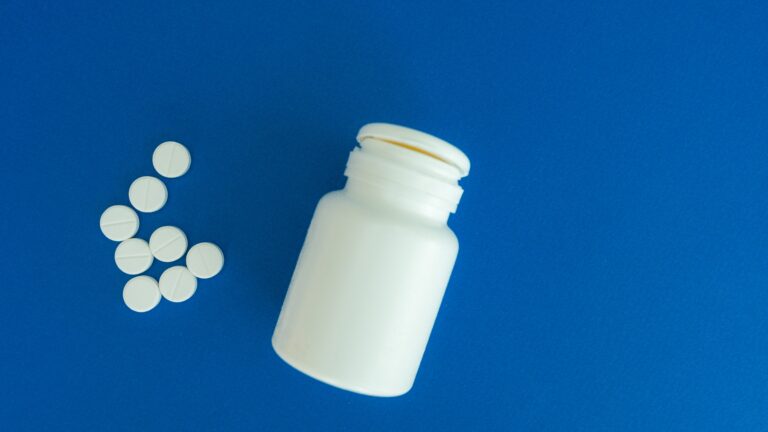When it comes to managing your health, there’s no such thing as being too informed. If you’re taking metoprolol or considering it, you might be wondering if this medication could be messing with your testosterone levels. Testosterone isn’t just about muscles and libido—it’s also about energy, mood, and overall vitality. Let’s break this down and give you the straight facts.
What is Metoprolol and How Does It Work?
Metoprolol belongs to a class of drugs known as beta-blockers, primarily prescribed to treat high blood pressure, angina (chest pain), and even heart rhythm disorders. By blocking beta-adrenergic receptors, metoprolol slows down your heart rate, reduces the heart’s workload, and helps lower blood pressure.
This medication is a lifesaver for many, but as with any drug, it comes with its list of potential side effects. Among these, concerns about hormonal disruptions—like testosterone levels—often arise.
Does Metoprolol Affect Testosterone Levels?
Let’s get into the science. While there’s no overwhelming evidence that metoprolol directly lowers testosterone levels, there are a few ways it could indirectly influence your hormones:
- Impact on Stress Hormones:
Metoprolol reduces the production of stress hormones like adrenaline. While this is great for your heart, it might subtly affect the hypothalamic-pituitary-gonadal (HPG) axis—a system responsible for testosterone production.
- Decreased Physical Activity:
Fatigue is a common side effect of metoprolol. Less energy often means reduced physical activity, and regular exercise is a natural testosterone booster. This domino effect could potentially contribute to lower testosterone levels over time.
- Mood and Libido Changes:
Some men report feeling “off” while on beta-blockers, including lower libido. While this isn’t a direct marker of testosterone decline, it’s a symptom worth noting and discussing with your doctor.
Signs Your Testosterone Levels Might Be Low
If you’re worried about testosterone levels, look out for these symptoms:
- Fatigue and lack of energy
- Reduced muscle mass and strength
- Increased body fat, especially around the waist
- Low libido or sexual dysfunction
- Changes in mood, such as irritability or depression
If any of these hit home, it might be worth exploring whether your medications or other factors could be playing a role.
The Role of Beta-Blockers in Testosterone Regulation
Research on beta-blockers and testosterone is still evolving. Some studies suggest that older beta-blockers like propranolol may have a greater impact on testosterone than newer, more selective beta-blockers like metoprolol. This means that while metoprolol is less likely to cause issues, it’s not entirely off the hook.
How to Support Healthy Testosterone Levels While Taking Metoprolol
Worried about testosterone? Don’t be. There are plenty of ways to keep your levels optimal, even if you’re on metoprolol:
- Stay Active
Even if metoprolol leaves you feeling tired, gentle exercise like walking, weightlifting, or yoga can help maintain your testosterone levels. Aim for consistency over intensity.
- Prioritize Sleep
Testosterone production peaks during sleep. Make sure you’re getting 7-9 hours of quality rest every night.
- Eat a Balanced Diet
Focus on foods rich in zinc, vitamin D, and healthy fats, such as eggs, nuts, and avocados. These nutrients play a key role in hormone production.
- Manage Stress
Chronic stress can tank your testosterone. Incorporate relaxation techniques like meditation, deep breathing, or even a good laugh with friends.
- Talk to Your Doctor
If you’re concerned, ask your doctor about regular blood tests to monitor your testosterone levels. There might be alternative medications or strategies to mitigate side effects.
When to Speak with a Healthcare Professional
Don’t be a hero—if you’re experiencing significant fatigue, mood swings, or other symptoms that seem out of the ordinary, schedule a conversation with your doctor. Be upfront about how you’re feeling and discuss whether metoprolol could be contributing. Sometimes, tweaking your dosage or switching medications can make a world of difference.
Frequently Asked Questions
1. Can I take testosterone supplements if I’m on metoprolol?
Yes, but only under the supervision of your doctor. Self-medicating with testosterone can have serious side effects, especially if you’re managing heart conditions.
2. Are there alternatives to metoprolol?
There are other beta-blockers and even different classes of medications to manage high blood pressure. Speak with your healthcare provider about whether an alternative might work better for you.
3. How often should I test my testosterone levels?
If you’re on long-term metoprolol and concerned about testosterone, consider testing at least once a year. However, this should be tailored to your individual health needs.
The Bottom Line
Metoprolol is a reliable medication for managing heart health, but it’s not without potential side effects. While there’s no concrete evidence that it significantly lowers testosterone, it’s important to pay attention to how you feel and take proactive steps to support your hormone levels.
Remember, your health is a long game. Take charge, stay informed, and work with your doctor to ensure you’re feeling your best. Life’s too short to feel anything less than great—so don’t settle for “meh” when you could be feeling like a king.
You’ve got this.
Sources and Further Reading
To ensure you have access to reliable information and deeper insights, here are some trusted sources and articles related to the topic:
- National Library of Medicine (PubMed)
Learn more about beta-blockers like metoprolol and their effects on hormones:
https://pubmed.ncbi.nlm.nih.gov
- American Heart Association
Understand how beta-blockers work and their role in heart health:
https://www.heart.org
- Mayo Clinic
Explore detailed information about testosterone levels and symptoms of deficiency:
https://www.mayoclinic.org
- Healthline
Insights into managing low testosterone naturally:
https://www.healthline.com/health/low-testosterone
- Cleveland Clinic
Comprehensive guide on beta-blockers and their side effects:
https://my.clevelandclinic.org
- Hormone Health Network
Resourceful articles on testosterone and its impact on men’s health:
https://www.hormone.org
These sources provide scientifically-backed and up-to-date insights into metoprolol, testosterone, and overall men’s health. Always consult your healthcare provider for personalized advice.





